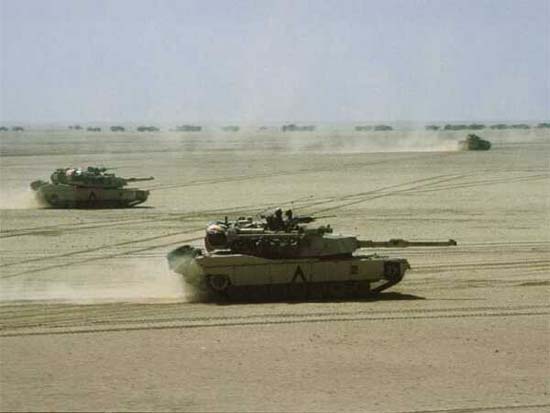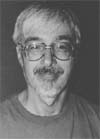May 20, 2003 - Lesbian, Gay, and Bi-Sexual Peace Corps Volunteers: Does the Peace Corps have a future in the age of the American imperium?
Peace Corps Online:
Peace Corps News:
Headlines:
Peace Corps Headlines - 2003:
May 2003 Peace Corps Headlines:
May 20, 2003 - Lesbian, Gay, and Bi-Sexual Peace Corps Volunteers: Does the Peace Corps have a future in the age of the American imperium?
What is the Peace Corps' future in the age of the American imperium?

Read and comment on this op-ed by Ethiopia RPCV Richard Lipez on the role of the Peace Corps in a world where the United States is not so much respected as feared. You can agree or disagree with Bush policy on Iraq, but the ugly reality is, much of the world doesn't agree with an aggressive, unilateralist American foreign policy. Can volunteers carry out Peace Corps goals effectively if they are seen more and more as agents of an imperial regime? Read this op-ed that raises questions about the future of the Peace Corps at:
Peace Corps and the War on Iraq - Dick Lipez, RPCV Ethiopia*
* This link was active on the date it was posted. PCOL is not responsible for broken links which may have changed.
Peace Corps and the War on Iraq - Dick Lipez, RPCV Ethiopia
Does the Peace Corps have a future in the age of the American imperium? Can an organization whose job has always been in an almost literal sense "preemptive peace" function at all in a time of "preemptive war?" There's no evidence that the Bush administration is asking these questions. Optimistically, it just hiked the Peace Corps budget another 20 percent. But it's only a matter of time before circumstances force Peace Corps leaders to think hard about sending Americans out to work and intermingle in a world where increasingly the United States is not so much respected as feared.
The current Peace Corps administration has determined, not unreasonably, that volunteer security should be a major concern. Director Vasquez, a former police officer, talked about volunteer safety from the day he was sworn in. And after the 9/11 terrorist attacks, security became a preoccupation. Volunteers in the Islamic world were shuffled around and some programs near Afghanistan were suspended. Recently the Morocco project was shut down, with volunteers yanked from their sites with little chance to say goodbye to friends and colleagues. The age of word-wide terrorism is a long way from the days when the biggest threats to PCV wellbeing were food poisoning and Jeep accidents.
But beyond questions of staying alive and uninjured, can volunteers even begin to carry out Peace Corps goals (particularly the second, "to help promote a better understanding of Americans on the part of people served") effectively if they are seen more and more as agents of an imperial regime? You can agree or disagree with Bush policy on Iraq, but the ugly reality is, most of the world thinks our aggressive, unilateralist foreign policy stinks. And worldwide opinion of the United States may be at its lowest ebb in U.S. history.
Or at least since the Vietnam era. When I arrived in Ethiopia with that country's first PCV group in pre-Vietnam 1962, many Ethiopians were suspicious of us at first. But that was mainly because Ethiopians had been badly treated by outsiders over the centuries, from Ahmed Gran to Mussolini. The United States of John F. Kennedy was generally well thought of, and most Ethiopians got used to us or even liked us and we could do the jobs we came to do.
When I visited Ethiopia in 1971, however, at the height of the Vietnam war, opinions of America and Americans had crashed. In an atmosphere of anti-war and anti-U.S. strikes and demonstrations, the effectiveness of PCVs ranged from the compromised to nil. It was the beginning of the end for the Peace Corps in Ethiopia.
Imagine a world with Bush administration hawks careening from one preemptive conquest to another - unlikely maybe, but not out of the question. What the Peace Corps could find itself in is a world where the caustic and frequently destructive anti-Americanism of the late 1960s and 70s looks puny in comparison, almost a topic for nostalgia.
And yet there's a paradox in all this. Recent polls show that most Americans not only support the invasion of Iraq; they do so for reasons that aren't all bad except for their naivete. Apart from questions of Middle Eastern geo-strategic maneuvering and the elimination of real or imagined weapons of mass destruction, most Americans like it that our country overthrew a despotic regime and is trying to institute representative government. The Iraqi people are now "free." The terrible costs and the perilous future consequences are secondary or don't count at all in the minds of many Americans.
Still, there is, as always, something admirable in the impulse to free a people from a tyrant's yoke. It's the same part of the American grain that helps animate the Peace Corps. If there's one thing that PCVs know, it's that good social change is complicated and hard. And it rarely works when it is imposed. That's likely to be the post-war lesson of Iraq. It's a shame Bush, Cheney, Rumsfeld, Wolfowitz, et al have never been PCVs (it's a hair-raising image, I know). The experience might have left them with the knowledge of the world and the humility in the face of complexity they clearly lack.
The Peace Corps will and should push on as best it can. But it is likely to suffer and shrink in the new world created partly by a demented Osama bin Laden and partly by an unknowing and arrogant George W. Bush. The best hope for the Peace Corps and its mission, more splendid than ever, is to outlast the both of them.
About the Author

Richard Lipez is an editorial writer at The Berkshire Eagle and mystery columnist for Washington Post Book World. In the early 60s he taught English language and composition to ninth grade public school students as a Peace Corps volunteer in Ethiopia. In the mid 60s he served as program evaluator for the Peace Corps and ran a cross-cultural studies for new P.C. volunteers at the University of Utah. In the late 60s and in 1970 he was the Executive Director of the Action for Opportunity anti-poverty agency. Since the early 70ís he has concentrated his talents in Journalism and writing numerous mystery novels under the pseudonym of Richard Stevenson.
Acknowledgements
Thanks to Mike Learned for permission to reprint this op-ed from the LGB RPCVs mailing list.
Click on a link below for more stories on PCOL
5/19/03

Some postings on Peace Corps Online are provided to the individual members of this group without permission of the copyright owner for the non-profit purposes of criticism, comment, education, scholarship, and research under the "Fair Use" provisions of U.S. Government copyright laws and they may not be distributed further without permission of the copyright owner. Peace Corps Online does not vouch for the accuracy of the content of the postings, which is the sole responsibility of the copyright holder.
This story has been posted in the following forums: : Headlines; Speaking Out; COS - Ethiopia
PCOL4937
31
.
Richard,
Thanks for that well written article. I enjoyed it. You points are well taken. Thanks for bringing up these issues.
Berkshire Eagle, I am out there each week in my work and I have read your articles. Thanks for your contribution.
Daniel Pailes
A traveling peddler of fish from Salisbury to Pittsfield, Ma.
|
By Blake Porter (1cust100.tnt39.dca5.da.uu.net - 67.249.228.100) on Sunday, December 07, 2003 - 11:57 pm: Edit Post |
These are all very good and very important points on the subject. I myself am not a volunteer, but I was thinking about becoming one. However, with the political climate of our country being what it is, I am now considering NGO's (Non Governmental Organizations) as an alternative. Frankly, I'm also considering moving to Canada.
I think that it might be a very good thing for the Peace Corps to become an independant organization, while maintaining the same ideals. I understand that there are multitudinous problems with that idea, mostly in the funding department, but something has to give, right?



